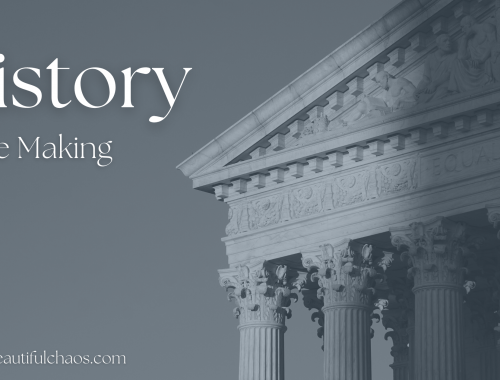Misfit Heroes: The Most Reluctant Convert
I hope you’ve been enjoying this continuation of “Misfit Heroes” for the past few weeks! This time, instead of wrapping up another part of the series, I am going to be changing the way the future of the series continues. “Misfit Heroes” is going to be an ongoing series but it will no longer have a regular posting schedule. This means you never know when a new “Misfit Heroes” post might end up in your inbox! With that announcement out of the way, here is this week’s post.
A baby boy was born in Belfast in 1898, the grandson of a priest and the great-grandson of a bishop. He would go on to become one of the great apologists of the 20th century, but the road that his life would take first took him away from the very thing he would later spend years defending. Named Clive Staples Lewis at birth, he adopted the name “Jacksie” at the age of four when his beloved dog of the same name was killed by a car. Later he accepted “Jack” instead, and went by that name for the rest of his life. His early years were filled with an interest in reading and writing, specifically stories about talking animals, something that would foretell his future calling. As a teenager, after suffering the loss of his mother to cancer and being sent to a boarding school by his father, Lewis turned away from his Christian faith and embraced atheism. He later described his younger self as being both “very angry with God for not existing” and “equally angry with him for creating a world”.
At the age of 18 he left his native Ireland to enroll in Oxford, only to shortly thereafter start training for the army. Arriving in France on his 19th birthday, he experienced trench warfare for the first time, enduring the harsh conditions of the front lines of WWI. He was soon wounded in an accident where two of his colleagues were killed. While convalescing, he suffered from depression and homesickness. He later wrote that his experiences of the horrors of war, along with the loss of his mother, and his unhappiness in school were the causes for his despair and disbelief in God.
After being released from the army, he continued his education, graduated and eventually became a tutor and a writer. His academic interests put him into society with other notable writers of his time, including his good friend and Oxford colleague J.R.R. Tolkien. It was due in large part to Tolkien’s influence that Lewis found his way back to Christianity. It took time and in 1929 he first converted from atheism to theism, the belief that there is a supreme being. For a long time he stubbornly resisted all efforts to convert him, and in his own words he was dragged back to God like a prodigal “kicking, struggling, resentful, and darting his eyes in every direction for a chance to escape”. In 1931, after a long talk with Tolkien and another friend, Hugo Dyson, Lewis converted to Christianity and later became a member of the church of England.
From then on, Lewis was not only a devoted follower of God, but he devoted his life to telling others about Him. During WWII, he regularly spoke on religious radio broadcasts that the BBC would broadcast during air raids. These speeches encouraged both civilians and servicemen alike and were later compiled in his book Mere Christianity. During the war, he and his brother Warren also opened their home to child evacuees from London and other cities. It was partly from that experience that his best known work, The Chronicles of Narnia series, was inspired.
Lewis did not marry until later in life, when, in 1957 he married American writer and fellow former atheist Joy Davidman Gresham. She had divorced her abusive and alcoholic husband, novelist William L. Gresham, and moved to England with her sons Douglas and David when Lewis first met her. He was first attracted to her incredible intellect, and later, after she was diagnosed with terminal bone cancer they were married. The ceremony was performed at the side of her hospital bed and shortly thereafter her cancer went into remission. The couple, along with Joy’s two sons, lived with Lewis’ brother Warren in their home The Kilns until 1960 when her cancer recurred and she passed away.
In early 1961, Lewis began suffering from a kidney disorder which resulted in blood poisoning. He initially regained his health, but in 1963 he fell ill again. C.S. Lewis died on November 22, 1963, exactly one week before his 65th birthday. The news of this well known author’s death was soon overshadowed by the news that American President John F. Kennedy had been assassinated that same day in the United States.
C.S. Lewis has been called one of the most influential apologists of his time, as well as being called “The Apostle to the Skeptics” because of his own experience as an atheist who found God. His many works have affected countless people, showing them compelling arguments for why God exists, encouraging them in their belief, and lifting their thoughts to higher things. His influence will never be fully known this side of heaven and we can thank God that He doesn’t use a person’s past to determine their future! If He can change the heart of an atheist, leading him to become one of history’s strongest defenders of the faith, then what can’t He do?
Here are some quotes to help you get to know this incredible author even better (and if you haven’t read any of his books, you really should!).
God cannot give us a happiness and peace apart from Himself, because it is not there. There is no such thing.
(from Mere Christianity)
If I find in myself a desire which no experience in this world can satisfy, the most probable explanation is that I was made for another world.
(from Mere Christianity)
Some people feel guilty about their anxieties and regard them as a defect of faith but they are afflictions, not sins. Like all afflictions, they are, if we can so take them, our share in the passion of Christ.
(from Letters to Malcolm)
I believe in Christianity as I believe that the Sun has risen, not only because I see it but because by it, I see everything else.
(from “Is Theology Poetry?”)
There are no ordinary people. You have never talked to a mere mortal.
(from The Weight of Glory)
1st New Video Since When?
The Beautiful Unknown
You May Also Like

Be Strong & Courageous
August 8, 2019
History In the Making
June 24, 2022